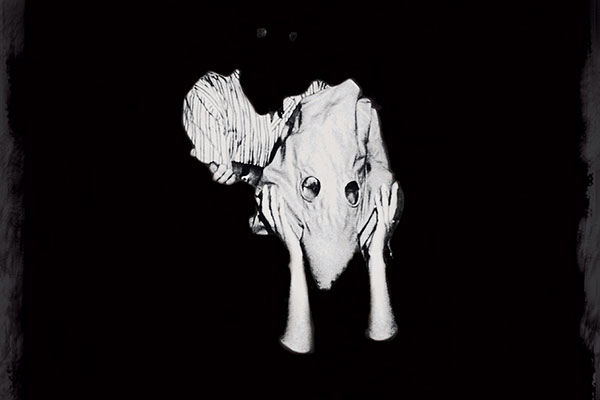Sigur Rós - Kveikur
The new essential Sigur Rós album.
Fairies. Fireflies. Icebergs. Rain. Learning how to fly. Whatever imagery people associate with Icelandic post-rockers Sigur Rós, there is a common sense of wonder to it. I’ve always likened listening to them to diving into an ocean, the way their music engulfs you and makes gravity a distant memory. This is true of their latest album Kveikur, though this time around the waters have never been darker.
Kveikur comes a mere thirteen months after the release of their previous full-length, Valtari. A vast album of piano, vocals and little else, Valtari saw the band exploring old ideas in a new, much more ambient context. Though no less gorgeous than any of their previous work, many fans concluded the record was uneventful and didn’t push Sigur Rós’ sound forward. Luckily for those who felt as much, Kveikur is a big leap into the unknown.
Following the departure of long-time keyboardist Kjartan Sveinsson, Sigur Rós went in a heavier and more experimental direction on this album. This change in sound hits you like a ton of bricks on opener “Brennisteinn”; distorted bass riffs suggest a dubstep influence, rumbling beneath layers of percussion and detuned guitar. Jónsi Birgisson’s melancholy falsetto soars far above the chaos, creating a remarkable heaven/hell juxtaposition. A disclaimer for the metalheads: Kveikur only gets this aggressive twice.
The other hard-hitter comes a number of tracks later. Though I’ve occassionally described them as “heavy” in the past, never in my life did I think I’d call a Sigur Rós track “evil.” However, Kveikur’s title track necessitates it. After years of soundtracking Attenborough-narrated documentaries of melting icecaps and baby polar bears falling over, here they are dabbling in some of the darkest sounds known to man. Kveikur’s industrial beats and contorted metal riffs form a hellish groove, whilst a children’s choir straight out of The Omen looms in the background. Even Jónsi isn’t there to save you, dropping his fairy godfather role and becoming a cloaked, ringwraith-like figure. I’ll go ahead and say it; it’s evil stuff.
But like any good horror film, Kveikur uses its scares and gore sparingly. The songs without monsters prove just as tense and exhilarating, granting the album the ingredient Valtari was most sorely lacking: tension. Even when Kveikur gets seriously poppy (“Ísjaki,” “Rafstraumur”), the molten lava of “Brennisteinn” is still fresh in your mind. Menace still hangs in the air. This sense of vulnerability sustains until the album’s final track, the aptly titled “Var” (“shelter”). Arriving at this wordless piano piece is like climbing into bed after a night of terror. But what a night it has been.







